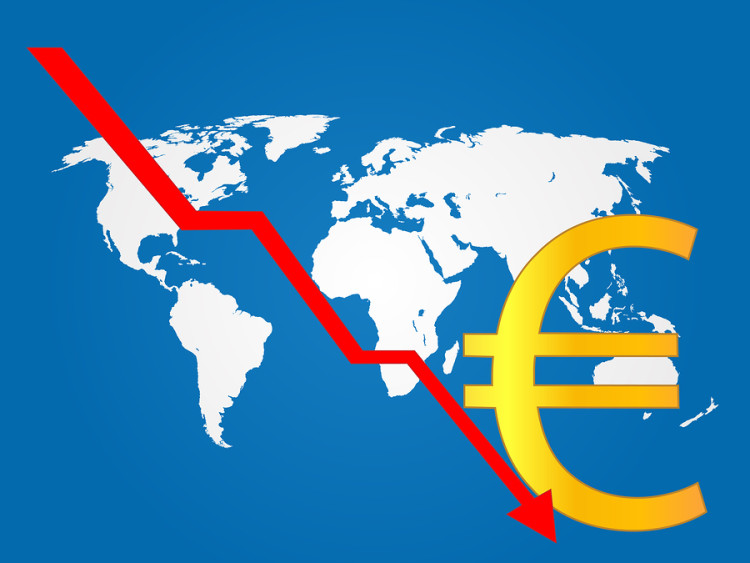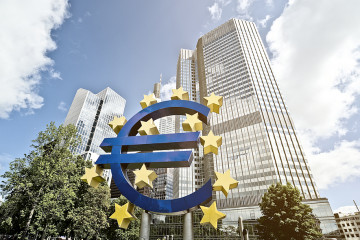Euro Falls to 1-Month Low as Inflation Drop Widens Gap With U.S.

©2016 Bloomberg News
O0I2UA6KLVRC
(Bloomberg) — The euro slumped to its lowest in a month as an inflation report highlighted the persistent gap between economic growth in the currency bloc and in the U.S. The common currency fell a fourth day, extending its longest losing streak since November, as a consumer-price index for the region trailed forecasts. The yen rallied a second day even as China intervened to support share prices following a 7 percent rout on Monday. Japan’s currency, a traditional safe haven, touched its highest since October on Monday.A favorite trade for much of last year — selling euro to buy the dollar — remains in vogue. Economic releases show the European Central Bank is struggling to foster lasting growth and inflation even as it ramps up stimulus. U.S. officials, meanwhile, are looking to raise rates four times in 2016, with Fed Bank of Cleveland President Loretta Mester saying fundamentals of the American economy “remain very sound.” “The euro-dollar lower story still holds up,” said Eimear Daly, a currency strategist at Standard Chartered Plc in London. “There wasn’t a bounce back in terms of inflation. That’s reinvigorating the conviction that you’ve got the ECB on hold or easing policy further, while the U.S. has already started the tightening cycle.” The euro slid 0.8 percent to $1.0748 as of 5 p.m. in New York, its weakest on a closing basis since Dec. 2.The yen added 0.3 percent to 119.06 per dollar. It touched 118.70 on Monday, its strongest since Oct. 15.
More Stimulus
Euro-area inflation advanced 0.2 percent from a year earlier in December, a report from the European Union’s statistics office showed. The median estimate of 32 analysts surveyed by Bloomberg was a 0.3 percent increase. The inflation rate remains far below policy makers’ near-2 percent target.The U.S. consumer price index was up 0.5 percent in November from a year earlier.ECB President Mario Draghi last month extended the central bank’s program of bond buying through March 2017, and reduced the deposit rate to minus 0.3 percent. While loose monetary policy normally engenders a weaker currency, the euro responded with its best month since April.“The reason for euro bearishness is obvious: this morning’s December CPI report,” Matt Weller, an analyst at Gain Capital Holdings Inc.’s Forex.com unit in Grand Rapids, Michigan, wrote in a note. “After December’s half-hearted easing measures from the ECB, pressure is already growing for more aggressive action.”
To contact the reporter on this story: Rachel Evans in New York at revans43@bloomberg.net To contact the editors responsible for this story: Paul Dobson at pdobson2@bloomberg.net Paul Cox







No Comment